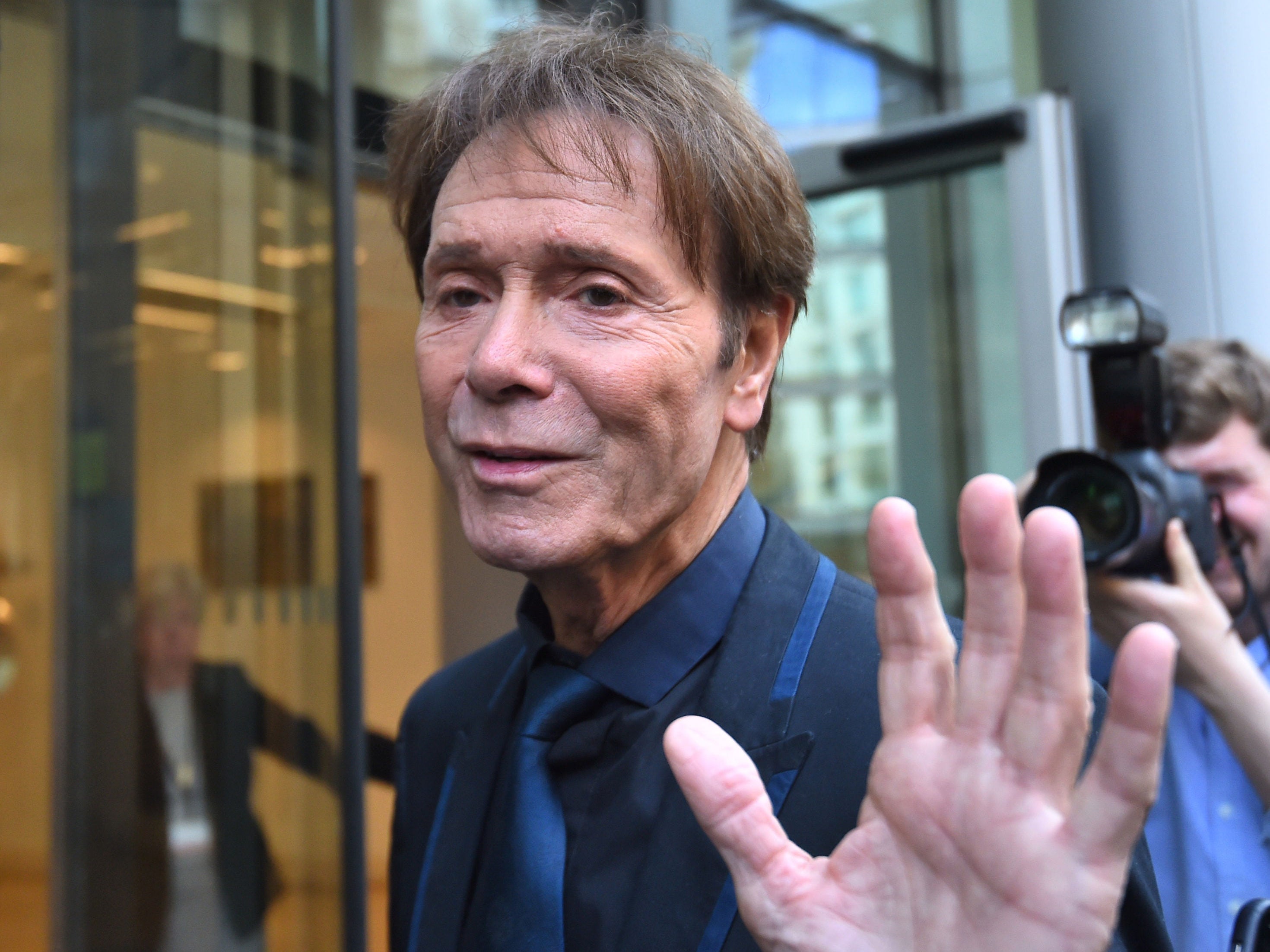
The BBC may not appeal a High Court judgement – which found it had breached Sir Cliff Richard’s privacy – amid concerns about mounting court costs, according to the Sunday Times.
The corporation has already agreed to pay more than £800,000 of the 77-year-old singer’s court costs on top of £210,000 in damages.
Trial judge Mr Justice Mann is set to rule on further costs relating to Sir Cliff’s financial losses as a result of a police investigation into a historical child sex assault allegation against him being broadcast by BBC News.
Sir Cliff was never charged and the case against him was later dropped.
The Sunday Times has claimed the BBC is “increasingly concerned that licence-fee payers will not tolerate more being spent on the case” and that it fears a “public backlash” if it pursues a costly appeal case.
But, the BBC considers the ruling to have resulted in a significant change to common journalistic practice, effectively granting anonymity to anyone under criminal investigation.
The BBC’s director of news Fran Unsworth said in a statement after the verdict, handed down on July 18, that it represented a “dramatic shift against press freedom” and effectively created new case law – although this has been downplayed by Mr Justice Mann and other legal experts.
Unsworth said: “This impacts not just the BBC, but every media organisation. This isn’t just about reporting on individuals. It means police investigations, and searches of people’s homes, could go unreported and unscrutinised.”
The BBC has been told it cannot pursue an appeal through the High Court, so must now turn to the Court of Appeal.
The Sun has said the judgement represents a “profoundly dangerous and a devastating affront to press freedom”.
The Guardian has said: “The idea that the activities of the police could be placed off limits to reporters is anathema. It means placing them off limits to the public…”
Press Gazette has said: “If left to stand this ruling will not simply chill press freedom in the UK but create a new ice age, where massive police raids involving public figures must be conducted under a cloak of secrecy.”
Already both the Sun and Daily Mail – the UK’s two biggest-selling daily newspapers – have claimed law firm Carter-Ruck quoted the Sir Cliff ruling in legal letters attempting to prevent them from revealing the identity of a union official under an internal investigation.
A BBC spokesman said: “We are still considering our options”.
Picture: Kirsty O’Connor/PA Wire
Email pged@pressgazette.co.uk to point out mistakes, provide story tips or send in a letter for publication on our "Letters Page" blog
